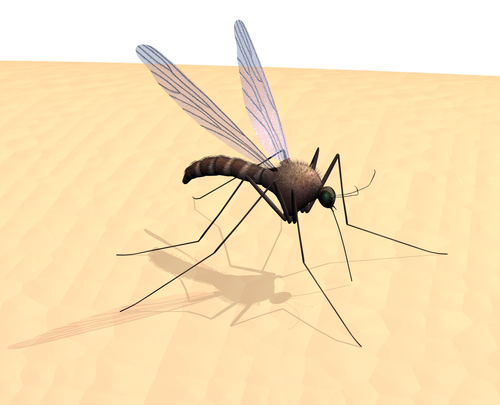In Melbourne, Vets recommend routine protection against Heartworm to prevent your pet from getting Heartworm. But what are Heartworms?
H
eartworms are parasites that live inside the heart and pulmonary arteries (the large arteries leading from the heart to the lungs) and feed on blood. They can grow up to 30cm long and there may be up to 300 worms in really severe cases. They live for 2-5 years and during this time the female heartworms can produce millions of young. These young heartworm are called Microfilariae which circulate in the bloodstream of an infected pet.

How are Pets infected with Heartworm?
The disease is spread between pets by mosquitos. When a mosquito bites an animal and feeds on their blood the mosquito ingests many microfilariae within the blood of the infected animal. The microfilariae mature within the mosquito and after 10-30 days they migrate to the mosquitos mouthparts. Then when that mosquito bites another pet it infects the healthy pet with the heartworm larvae. The larvae then migrate through the animal’s tissues and blood stream and eventually reach the heart and lungs where adult worms grow and reproduce. It takes 2-3 months before the young heartworm develop sufficiently to reproduce and the entire lifecycle takes approx. 6-7 months to be completed.

How is my pet affected?
The severity of disease depends on the amount of lung damage and how a pet’s immune system responds. This is dependent on actual worm numbers and each individual animals reaction to the parasite.
Over time the presence of adult heartworms in the heart and pulmonary arteries causes and inflammation and thickening of blood vessel walls which increases blood pressure and cardiac effort to push blood in these vessels. The dog may develop heart failure which can eventually lead to death. Clinical symptoms usually appear only when the disease has reached a severe stage (usually 3-5 years from infection).
What are the symptoms of disease?
• Coughing – usually soft, dry, chronic cough
• Exercise intolerance
• Weight loss
• Laboured Breathing
• Dry Coat
• Lethargy

Treating Heartworm
Treating Heartworm infection is a long and risky process. Sometimes if significant damage has occurred to the heart, lungs, liver and kidneys it is safer to just treat the organ damage rather than risk treatment to kill the adult heartworms. Dying heartworms and their larvae may cause shock and embolism. Dogs need to be strictly monitored for side effects and have restricted activity for weeks.
How Can you Prevent Heartworm?
There are many products available for heartworm prevention and you can discuss these with your vet. The best option is one that suits you and your lifestyle.
Products include ‘spot-ons’ which are regularly applied to the skin at the back of your pets neck, tablets or chewables that are to be taken regularly or a ‘once-a-year’ injection. Some of the products are combined with preventatives for intestinal worm and flea control.
Puppies should start protection by 3 months or age. If you lapse in treatment or start after this your pet may need a blood test to check they are negative before starting prevention.
